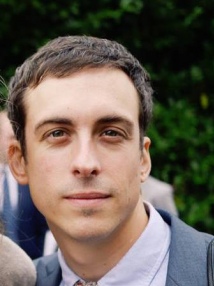BibTex format
@inproceedings{Hayes:2020:10.1016/j.euroneuro.2019.12.094,
author = {Hayes, A and Wing, V and McGonigle, J and Turton, S and Elliot, R and Ersche, KD and Flechais, R and Orban, C and Murphy, A and Smith, DG and Suckling, J and Taylor, EM and Deakin, JF and Robbins, TW and Nutt, DJ and Lingford-Hughes, AR and Paterson, LM},
doi = {10.1016/j.euroneuro.2019.12.094},
pages = {S70--S71},
publisher = {ELSEVIER},
title = {The relationship between reward processing and impulsivity in addiction: a functional magnetic resonance imaging study},
url = {http://dx.doi.org/10.1016/j.euroneuro.2019.12.094},
year = {2020}
}

